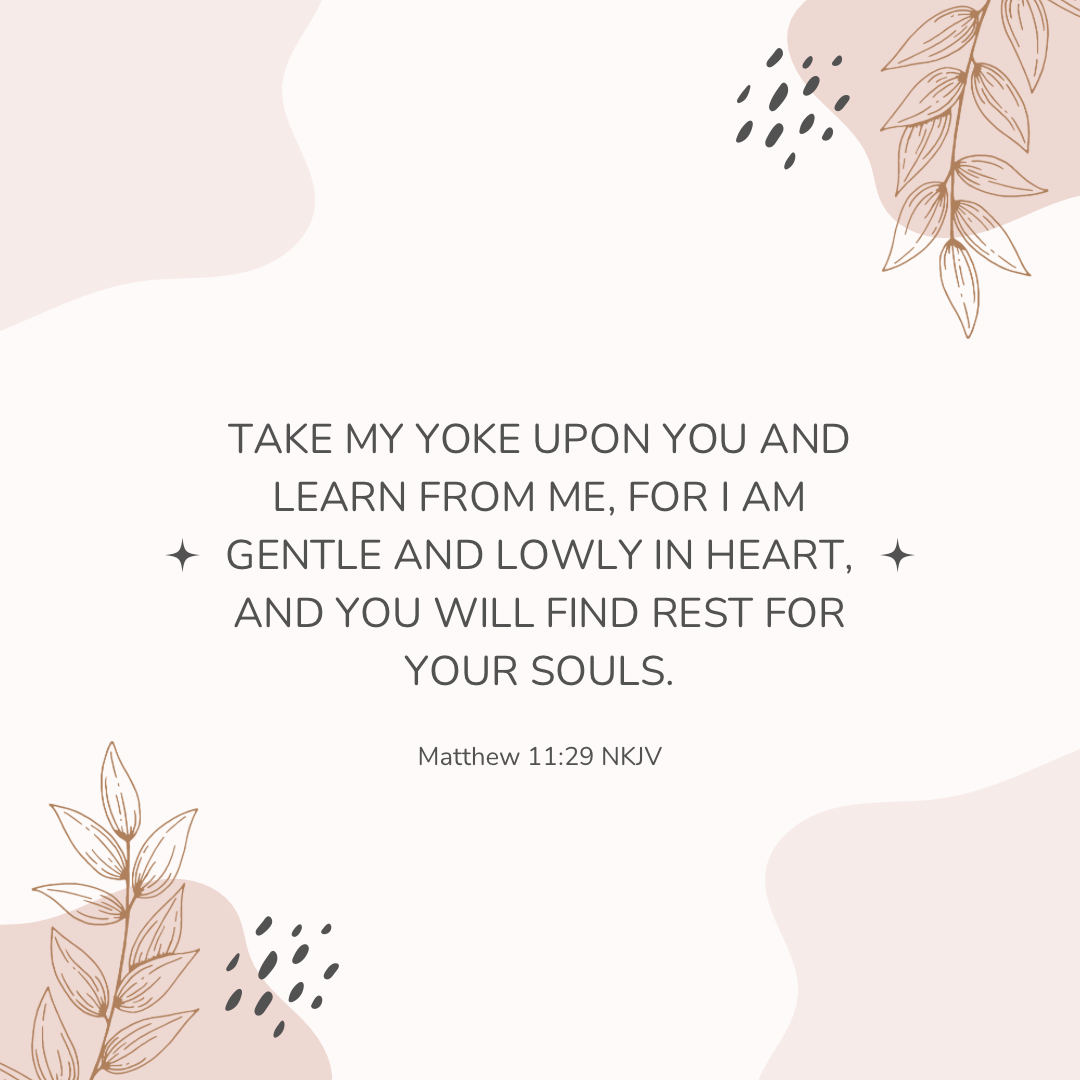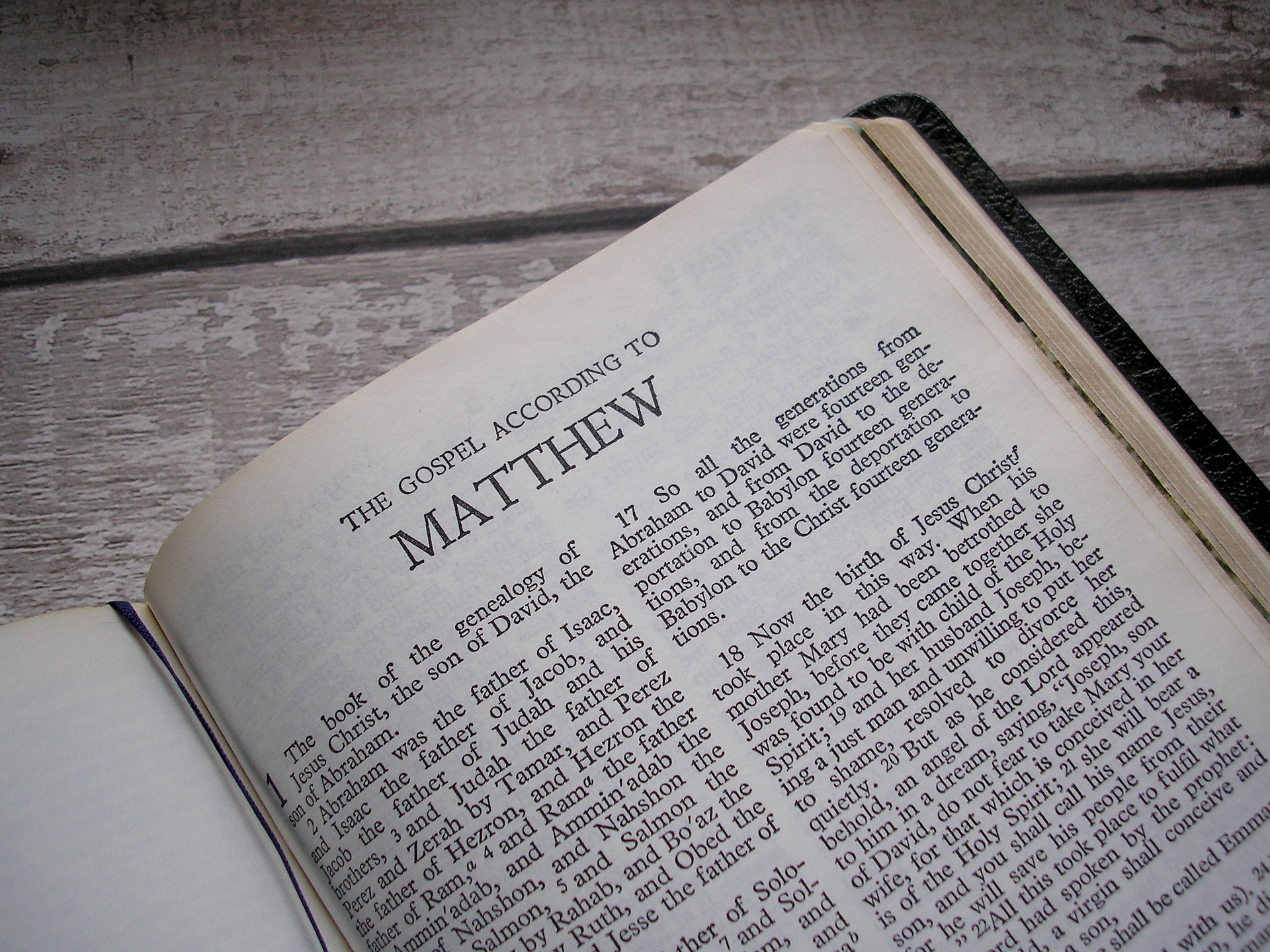Matthew Chapter 11 – Be Great by Being Small in a Light and Easy Way

“Take my yoke upon you and learn from me, for I am gentle and humble in heart, and you will find rest for your souls. For my yoke is easy and my burden is light.” (Matthew 11:29 and 30)
Can a yoke ever be light and easy? And yoke bearing restful?
The yoke can make us or break us. It can strengthen or weaken us. Throughout the Bible, the yoke often refers to burden, hardship, and responsibility. The yoke also refers to a partnership or an association underscored by servitude. For instance, Paul exhorts the believers not to be unequally yoked with unbelievers in all aspects of Christian life (2 Corinthians 6:14). Instead, as members of the same body, we are to bear one another’s burdens (Gal 6: 2). Only by working in tandem could the body of Christ grow, mature, and complete its mission.
The yoke also signals discipline and training. It structurally moulds the body, behavior, and the character of its bearer. Through this process, the bearer is made resilient, patient, and obedient. That’s why Jeremiah declares in his suffering, “It is good for a man to bear the yoke while he is young” (Lam 3: 27). Otherwise, he won’t be able to withstand the hardship and disappointment that life can bring to an ageing man.
When Jesus invites us to accept His yoke, He is in fact showing us how to be great by being small. How does that work? When we accept His yoke, we are accepting our inadequacy by entering into partnership with God. Through this partnership, God bears the yoke together with us as we accomplish our tasks in life.
Moses is an example that comes to mind. He was given no small task in God’s salvation plan. When the Israelites left Egypt under Moses’ leadership (around 1290 BCE), there were 600,000 men that followed (Gen 12:37). By estimation, the entire population of Israel could well be over 2 million.
As far as Moses was concerned, his leadership role was a yoke he would have rather avoided altogether. He was not leading a large population to an oasis with ready-built resorts to settle in for good. They were heading for the great and terrible wilderness. In times of crises, be it life-threatening danger (Ex 14; Num 14:10), perceived or otherwise, water scarcity (Ex 17), or food shortage (Ex 16), Moses had to deal with the worst of a volatile mob. We see him scared to death before the crowd (Num 14:5, 10) and often would rather be dead than alive (Num 11:15).
Despite God declared that Moses represented God (Ex 4: 16), Moses was repeatedly betrayed not just by commoners, but also by other leadership such as the Korahs (Num 16), and even his very own family, including his ‘mouth’ Aaron (Num 12). The rebellion of the people led to Moses witnessing many traumatic massive death scenes (Nm 16: 31, 35, 48; Num 21:6; Num 25:9). Day and night Moses worked over-time to resolve issues brought forth by the Israelites. So much so that his father-in-law had to intervene and advise him to set up an administration to share the load of his work (Exo 18:14-27). This eventually led to the designation of officials over thousands, hundreds, fifties and tens (Exo 18:21; Deut 1: 15), as well as seventy elders (Num 11: 16, 17). The yoke that Moses had to take up was extremely demanding, if not abusive, emotionally, intellectually, and physically.
How did Moses survive it all? The Bible drops us a clue, “Now Moses was a very humble man, more humble than anyone else on the face of the earth” (Num 12:3). The statement comes at a very low point in Moses’ public and private life, when we are told both his brother and sister betrayed him. Such betrayal is the worst kind that even King David had to write about it in Psalms to console the future generation in the event it happens (Psa 55: 12-14). But because Moses was humble, he had the best self-protection one could ever have. There was no pride to crash in the first place.
By laying himself low, Moses allowed God to shoulder his burdens. A telling moment was when the Israelites saw the Egyptians about to catch up. Seeing the Egyptian state-of-the-art military equipment, the Israelites were terrified and viciously complained. Moses, in his cool and calmness, reassured they would never see the Egyptians ever again. Yet, immediately after this conversation, God interjected, “why are you (referring to Moses) pleading on their behalf?” (Num 14:12-15).
We get this picture of an almighty God in His grandeur standing in the background, and a small tiny Moses standing in the front facing the Israelites. This small tiny figure in the front held his composure to the best he could, all the while begging God for help. Moses did not achieve his greatness on his own. He laid himself low and allowed God to take up a large share of his emotional and mental burden. That’s why God reminds, “…I carried you on eagles’ wings and brought you to myself” (Exo 19:4). In other words, we might think we are doing the flying when in fact it is God that flies us.
Does that mean being humble is to do nothing and be passive? On the contrary. In God we trust; the rest we must adjust. God can only help those who have done their best to help themselves. In order for God to complete His work, Moses had to receive the best education he could get, in the royal palace. It had been thought that only 1% of ancient Egyptian population were literate, meaning Moses was the cream of the crop. Yet, this wasn’t good enough for God. Moses had to undergo another forty years of unlearning and relearning in the wilderness. God well knew it was by gentleness and meekness could Moses lead Israel to inherit the earth (Matt 5:5) and to become a great nation (Psa 18:35).
How can we remain gentle and meek? Surround ourselves with giants. Giants are those that can elevate our stature and expand our horizons. Psychologists explain that learning can be divided into four stages:
1) unconsciously incompetent
2) consciously incompetent
3) consciously competent
4) unconsciously competent
In stage 1, we don’t even know what we don’t know. In stage 2, we come to know what we don’t know. In stage 3, we come to know by conscious effort. In stage 4, we master what we know without being aware that we know (e.g. when we are good at driving, we don’t think about how to drive). By surrounding ourselves with giants, we create opportunities for ourselves to learn and to be always aware of our own inadequacy and smallness. Spiritually, these giants could be “cloud of witnesses” (Heb 12:1) and those who “call on the name of the Lord” (2 Tim 2: 22). When we stand on their shoulders, we continue to keep ourselves in stage 2. We may never come to a full knowledge of what we need to know in life. Yet, we are constantly humbled by what we don’t know. This awareness is the beginning towards greatness, in a light and easy way.

